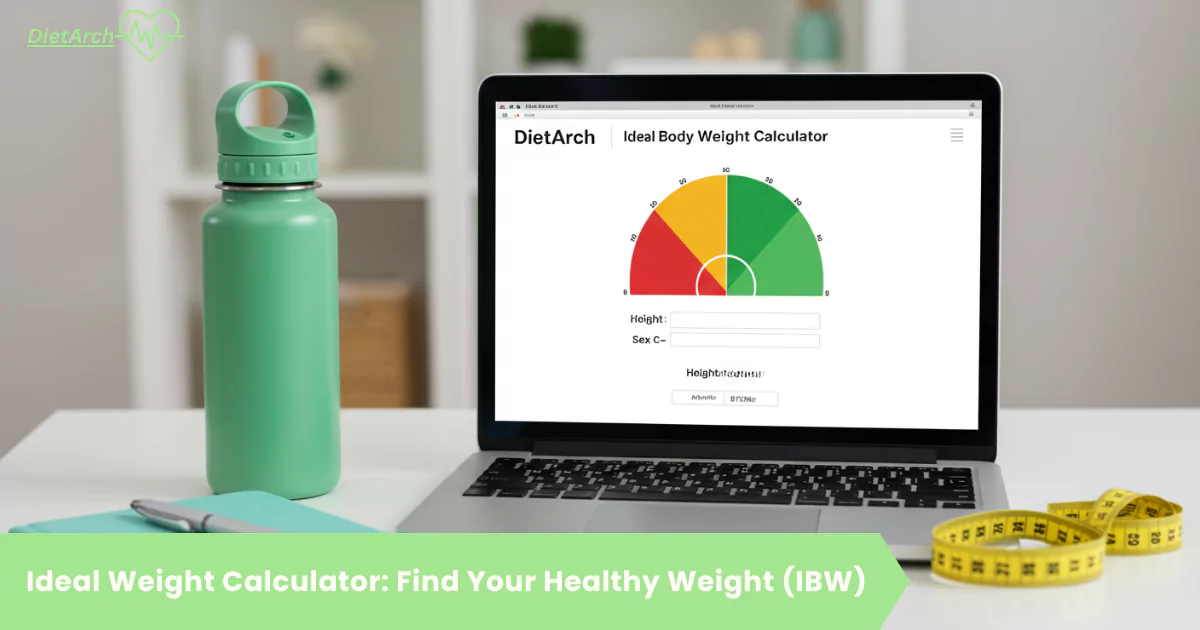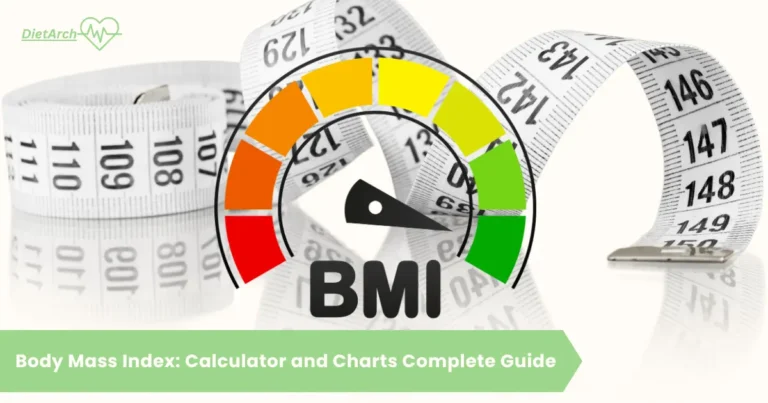How Much Should I Weigh? The Ideal Weight Calculator
Are you struggling to find an ideal weight? Use our Ideal weight calculator and determine your healthy weight. It gives you a result based on your gender, age, and height. Read more to learn about other IBW formulas and how to use them.
Ideal Body Weight Calculator
Fill in your details to generate your comprehensive health assessment.
Advanced Details (optional)
How the Ideal Weight Calculator Works
Our calculator is designed to give you a complete and personalized assessment. To get the most accurate results, we recommend that you follow the steps below:
- Select the Units for Measurement
You can choose either the metric system (centimeters and kilograms) or the imperial system (feet/inches and pounds). - Specify Gender
Indicate the gender for which the ideal weight range should be calculated. - Enter Age
Provide your current age. This parameter refines the calculation to align with age‑related considerations. - Input Height
Record your stature in the chosen unit of measure. For precision, make sure that your height falls between 153 cm (5 ft) and 2.72 m (8.9 ft).
Once you have given every detail, start the calculation to check whether your weight falls within the recommended range.
Advanced Details:
After giving the details, the calculator will show the result in seconds.
Use our macro calculator to calculate your daily macros.
What is a Healthy Weight for me?

For once in our lives, we all have thought, "What is my ideal weight?" We have always considered a single magic number on the scale as an ideal weight. But what if such a number does not exist? The truth is, our healthiest weight is not just one number. It is a personalized range that depends on your unique body.
This article will guide you to find your healthy weight range by using the comprehensive ideal weight calculator. We will explore why modern metrics are better than old formulas and how you can get a complete picture of your health that goes far beyond the scale.
Move on to our health hub and get assess to other health tools.
What is the ideal Healthy Weight?
Originally, the concept of "Ideal Body Weight" (IBW) was based on simple formulas made for clinical settings, like calculating medication dosages. These formulas, dating back to the 1960s, were never meant to be a health goal for any person. They are a representation of a one-size-fits-all approach that completely fails to consider the most important factors that make you different from others.
Considering a Single "Ideal" Number
Focusing on a single "ideal" weight is misleading and discouraging for several reasons. The old formulas completely ignore our body composition, age, ethnicity, and even our natural body frame size.
Why a Healthy Weight Range is a Better Goal
It is best to focus on a healthy weight range, not a single number. The range gives you a flexible target according to your body's individuality. It admits the fact that health looks different for everybody and moves our focus from a single, rigid number to a more holistic view of well-being. Our calculator is designed keeping this in mind to help you find this personalized range.
Body Mass Index (BMI)
Body Mass Index (BMI) is a measurement of your weight to your height. It is the best starting point for assessing health risk and is used to determine your Healthy Weight Range. For most adults, a healthy BMI is between 18.5 and 24.9.
Body Fat Percentage (%BF)
Your Estimated Body Fat Percentage (%BF) gives a better assessment of health than weight alone. It is essential to have a healthy body fat percentage, as excess fat is linked to health risks.
Waist-to-Hip Ratio (WHR)
WHR assesses the heart health risk by comparing your waist size to your hip size. It measures where you store fat rather than how much fat you store. Because fat stored around your abdomen (visceral fat) is linked to a higher risk of heart disease.
Waist-to-Height Ratio (WHtR)
Similar to WHR, your Waist-to-Height Ratio is another powerful tool for assessing central body fat. The general recommendation is to keep your waist circumference less than half of your height.
Daily Calorie Needs (BMR & TDEE)
To help you manage your weight, the calculator also estimates your daily calorie needs. You will see two numbers: Basal Metabolic Rate (BMR), the calories your body burns at rest, and Maintenance Calories (TDEE), the total calories you burn in a day.
Formulas for Finding the Ideal Weight
G. J. Hamwi Formula (1964) is a rule of thumb based on height and is primarily used for quick clinical estimations.
Male: 48.0 kg + 2.7 kg per inch over 5 feet
Female: 45.5 kg + 2.2 kg per inch over 5 feet
B. J. Devine Formula (1974) is the most common clinical formula. It was originally developed for calculating drug dosages based on body weight.
Male: 50.0 kg + 2.3 kg per inch over 5 feet
Female: 45.5 kg + 2.3 kg per inch over 5 feet
J. D. Robinson Formula (1983) is a modification of the Devine formula, adjusted using 1959 insurance data to better reflect population averages of that time.
Male: 52 kg + 1.9 kg per inch over 5 feet
Female: 49 kg + 1.7 kg per inch over 5 feet
D. R. Miller Formula (1983) is another variation of the Devine formula, this one based on more recent 1983 insurance data for a more updated estimate.
Male: 56.2 kg + 1.41 kg per inch over 5 feet
Female: 53.1 kg + 1.36 kg per inch over 5 feet
Our calculator includes a section on historical IBW formulas for educational purposes. You will see results from several methods, and you'll likely notice they all give you a slightly different number. This is the perfect illustration of why a single "ideal weight" is a flawed concept.
What factors affect Ideal Weight
Below are the factors that affect IBW:
Age
As we age, our metabolism, body composition, and hormonal health change. After puberty, around age 15 for girls and age 17 for boys, height remains fairly constant, making IBW constant. Although by age 70, it is common for men to lose about 1.5 inches and women about 2 inches.
Gender
Do you know females tend to store more fat, but they weigh less than males? It is because males have more muscles, which weigh more than fat. Additionally, males are taller than females. Females also have low bone density.
Height
The taller the person greater the ideal weight because height increases muscle mass and body fat. Remember, if a man and a woman are of the same height, the man will weigh 10-20% more than her.
Body Frame Size
Measure your wrist circumference and match it to your height; this is your body frame size. It is another factor that strongly affects Ideal weight. It is categorized into 3 types of small, medium, and large boned.

Women
Height less than 5′2″:
Height from 5′2″–5′5″:
Height over 5′5″:
Men (over 5′5″)
It is easy to understand that a large boned person will weigh more than a small-boned person.
Muscle Mass vs. Fat (For Athletes)
If you have a stronger muscle, your BMI might be in the overweight category. This is because muscle is dense and weighs more than fat. For you, BMI is not a reliable indicator.
If you check the "athlete" box, our tool will tell you to focus on your body fat percentage and performance metrics instead.
How Ethnicity Affects Healthy Weight Range
Studies highlight that specific ethnic groups, including individuals of Asian origin, are at lower risk for certain conditions, such as type 2 diabetes. Our calculator takes this information into account in order to select the correct BMI ranges and provide you with a more precise risk evaluation.
Healthy Weight for Older Adults
With increasing age, we naturally lose muscle mass. As a result, studies suggest that a slightly higher BMI (up to 27) may be acceptable or even protective for adults over 65.
Limitations
The Ideal Weight calculator is made completely for adult use and is not appropriate for children, adolescents, or pregnant women. Furthermore, it does not replace personalized evaluation or professional medical advice.
In a nutshell
The results from this Ideal weight calculator set the base for a deeper understanding of your health. Use this information to have an informed conversation with your doctor or a registered dietitian. Take little steps to achieve healthy well being.
Frequently Asked Questions
.





